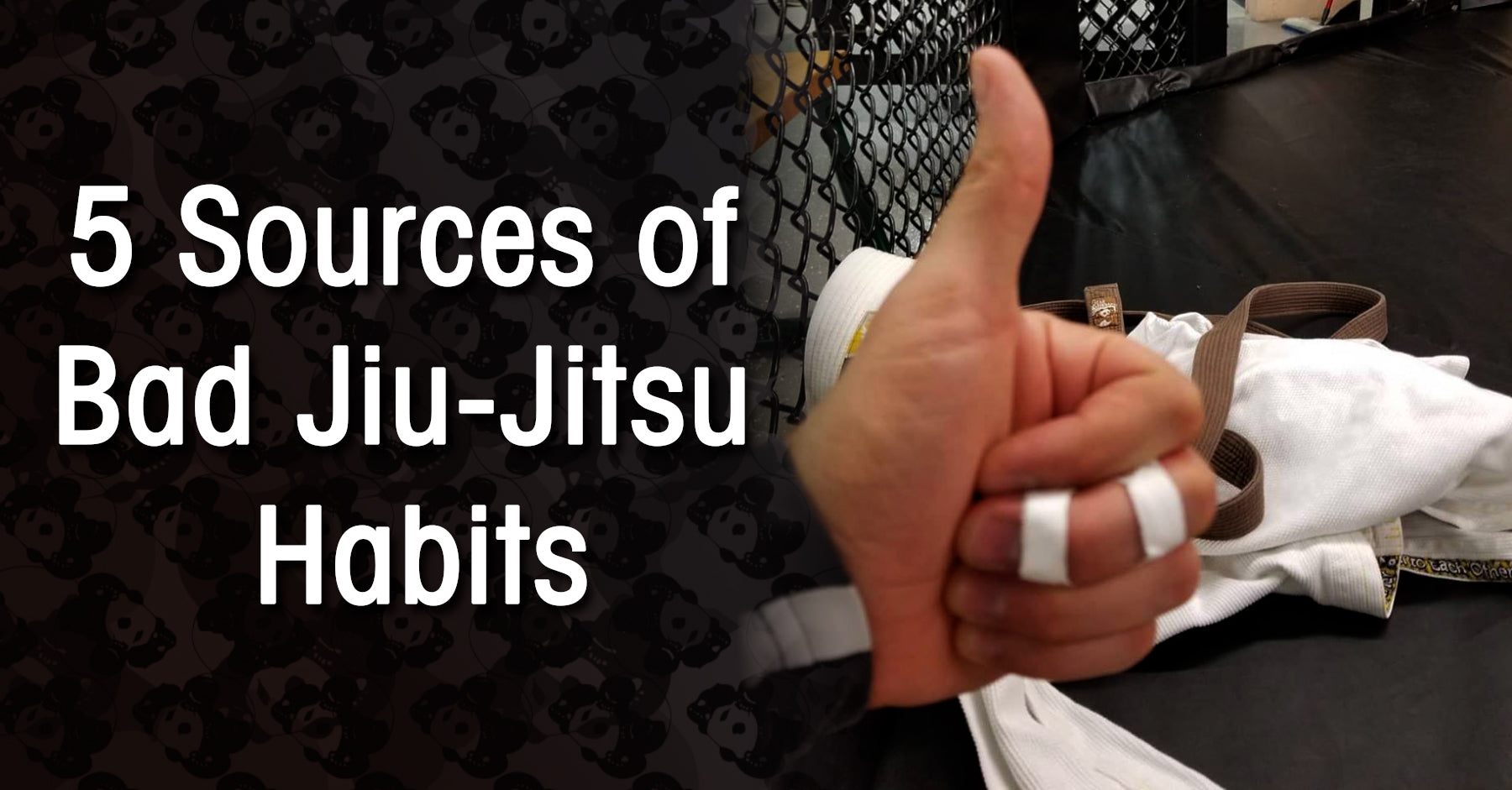
5 Sources of Bad Jiu-Jitsu Habits
The saying goes that practice makes perfect, but that’s not true. Practice makes instinct. Repetition ingrains habits so that your body can automate a task, freeing your brain to focus on other concerns. For example, when we first learn to drive, the process takes immense concentration. We have to learn to use our feet and hands for multiple tasks simultaneously, all while making rapid judgments about what to do about the world around us as we navigate our way from one destination to another.
At first, it’s a great deal of work to do all of these things at once. After a few hundred hours of practice, you can zip down the highway doing 65 while reciting the lines to The Hobbit audiobook.
Habits are a powerful tool, but their downfall is that any repeated behavior—good or bad—can become a habit. As a longtime jiu-jiteiro student and as an instructor, I have seen bad habits creep into my game and into the games of my students. They often come from seemingly harmful choices, but over time, they can derail your progress, forcing you to go back, tear out part of what you have already built so that you can rebuild it again.
If you can identify them early, however, you can stop bad habits from forming altogether. Here are the five most common sources of bad habits that I have seen:
-
Lazy drilling. Just because you learned the armbar from guard six years ago does not mean that it deserves less of your attention when you drill it for a warm-up. When we drill, we should focus on the detail and execution of every repetition, trying to make each one as perfect as possible. When we “phone it in,” our technical proficiency can begin to degrade.
-
Lack of follow-through. Though your drills might be technically sound, I often see students cheat their way through the final finish instead of reinforcing a strong conclusion. For example, if you execute a sweep, don’t release the movement two seconds from the finish and flop back to your guard. Complete the technique by arriving at a logical finish, such as solidifying a top position.
-
Drunken master rolling. I don’t think that advanced students should constantly smash new students, but if you spend a lot of time rolling with lower belts, you can get too comfortable flowing with haphazard technique because of the skill gap. This can dull your senses and weaken your ability to be sharp and technical against more advanced students.
-
Self-rationalization. Part of improving technique is critiquing your own performance. If something is not working when you train or roll, you have to identify a constructive reason for why it is failing. If you fall back on “he was too big” or “I was tired” or “I was just having a bad day” you will never identify the correctable problem, which means you won’t correct it, which means you won’t get better.
- Poor conditioning. For as much as we talk about jiu-jitsu being a tool for the unathletic, good training takes energy. If you tire quickly during class, your timing and execution can begin to suffer as your body attempts to compensate for your exhaustion. These distractions are not good for focused drilling, and they can start to reinforce incorrect movements.
Habits are, perhaps, your biggest training opportunity. As you layer positive habits on top of each other, reaching the point where your guard retention just happens out of instinct so that your brain is free to calculate a more elaborate trap for your opponent, really cool things can begin to happen in your jiu-jitsu.
If you are not vigilant about those habits being positive, however, you can unintentionally undermine your own progress.
Other articles:
Quick links
Contact us
About us
Quality BJJ gear at fair prices, available all year. Founded in 2012 to provide an alternative to high-cost, limited edition gis. Dive into the BJJ lifestyle with us—join the Panda Nation!"
